Brian
Collinsville, IL
very pleased with Mike B and loves the work he completed

As a homeowner, your home is your most valuable asset. Whether it’s a 2 bedroom/1 bathroom cottage or a large McMansion in suburban America, a healthy percentage of your net worth is likely tied up in your house. Additionally, your family depends on your home for comfort, safety, and security. With that being said, it’s your responsibility to ensure your home is properly cared for and maintained all year round.
Your ability to effectively maintain your home is largely dependent on how early you can identify issues and problem areas.
Early identification is an important step in fixing these issues, whether it’s a:


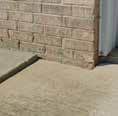
In most cases, the earlier you identify a problem, the less expensive and time-consuming it is to alleviate the issue. This is especially true when it comes to your home’s foundation. This guide will serve as your plan for regular home maintenance – particularly as it relates to foundation issues, concrete settlement, and structural repair. Feel free to print this guide, save it on your tablet, or bookmark it in your internet browser. It is intended to be used all-year-round and will help you ensure your home is healthy and protected through every month and season.
In this guide, we will discuss and include the following:
And finally, advice on what to do when you encounter a problem.
While it is impossible to mention every detail and home-specific problem, for more information on a specific section or piece of advice, please don’t hesitate to reach out and contact a local professional such as Helitech.
The problem with home stability and foundations is that no two situations are the same. Every home responds differently to internal and external elements, and you can only understand how your home reacts by keeping a close eye on potential issues. However, there are some general causes and contributing factors that heighten the threat of a compromised, weakened, or settled foundation. Let’s take a look.
![]() In some cases, the age of your home can be a contributing factor. In general, the older a home is, the greater the potential for foundation settlement and the greater risk it has of becoming structurally compromised. If your home is older than 10 years, you should always be alert to the possibility of structural issues. Now, that’s not to say you will have any. Homes can last for decades and even centuries without issue. However, as is the case with anything, deterioration comes with age.
In some cases, the age of your home can be a contributing factor. In general, the older a home is, the greater the potential for foundation settlement and the greater risk it has of becoming structurally compromised. If your home is older than 10 years, you should always be alert to the possibility of structural issues. Now, that’s not to say you will have any. Homes can last for decades and even centuries without issue. However, as is the case with anything, deterioration comes with age.
![]() Another major contributing factor to your home’s stability is the climate. When climate conditions change, they can have a profound effect on your home foundation’s integrity. As temperatures drop and it gets colder, the soil expands. Then, as the weather begins to warm and the soil dries, the ground around your foundation shrinks. As a result, drastic temperature shifts (or even normal seasonal changes) can lead to ground motion – which may affect the foundation.
Another major contributing factor to your home’s stability is the climate. When climate conditions change, they can have a profound effect on your home foundation’s integrity. As temperatures drop and it gets colder, the soil expands. Then, as the weather begins to warm and the soil dries, the ground around your foundation shrinks. As a result, drastic temperature shifts (or even normal seasonal changes) can lead to ground motion – which may affect the foundation.
![]() Other soil conditions can come into play, as well. From its composition to the amount of moisture held within, soil quality often determines the stability of a foundation. Soils with high clay content are typically at greater risk of foundation movement, while soils with low clay content are the least affected. As far as moisture is concerned, water is the primary culprit in many situations. Excess moisture can saturate the soil which causes it to weaken and expand while dehydrated soil tends to contract, crack, and compress or shrink.
Other soil conditions can come into play, as well. From its composition to the amount of moisture held within, soil quality often determines the stability of a foundation. Soils with high clay content are typically at greater risk of foundation movement, while soils with low clay content are the least affected. As far as moisture is concerned, water is the primary culprit in many situations. Excess moisture can saturate the soil which causes it to weaken and expand while dehydrated soil tends to contract, crack, and compress or shrink.
![]() Maintaining the proper moisture content is important. However, maturing bushes, trees, and vegetation surrounding a home can also cause issues. As they mature, their demand for water increases and the roots begin to pull moisture from the soil beneath the home’s foundation. When homeowners report foundation problems decades later, it sometimes directly coincides with the growth and size of surrounding plants.
Maintaining the proper moisture content is important. However, maturing bushes, trees, and vegetation surrounding a home can also cause issues. As they mature, their demand for water increases and the roots begin to pull moisture from the soil beneath the home’s foundation. When homeowners report foundation problems decades later, it sometimes directly coincides with the growth and size of surrounding plants.
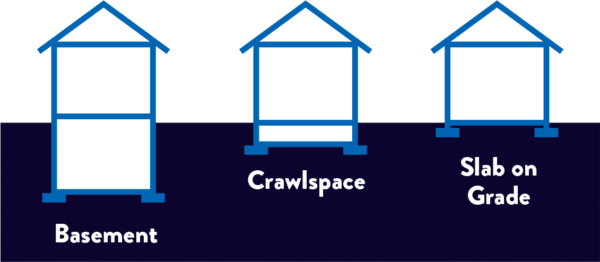
 Each type of home construction has its own pros and cons; Houses with basements are no different. Depending on where you live, basements may or may not be popular. For example, basements are rather rare in Florida because the water table depth is too close to the surface. However, in the northeast United States and other geographical areas where acreage is expensive, basements are used to increase square footage when space is at a premium. Here in the Midwest, basements are commonly used as an extra living space or storage, and come in handy for protection during tornado season.
Each type of home construction has its own pros and cons; Houses with basements are no different. Depending on where you live, basements may or may not be popular. For example, basements are rather rare in Florida because the water table depth is too close to the surface. However, in the northeast United States and other geographical areas where acreage is expensive, basements are used to increase square footage when space is at a premium. Here in the Midwest, basements are commonly used as an extra living space or storage, and come in handy for protection during tornado season.
Common home designs and styles that have basements are colonial, victorian, split level, some ranch designs, and some townhomes. However, depending on local codes, soil conditions, and preferences, any style could realistically include a basement.
Because of their proximity to the soil and direct relationship with the foundation, basements are prone to numerous problems. As a homeowner with a basement, it’s important you stay on top of home maintenance issues throughout the year and check for issues such as:
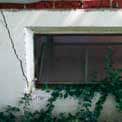
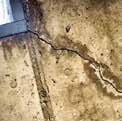

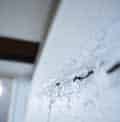
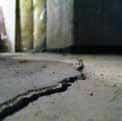
As far as regular maintenance tasks go, you shouldn’t forget to regularly:
For homes without basements, crawl spaces are a good compromise. Typical home designs with crawl spaces include ranch, colonial, and some split levels. Crawl spaces are widely used throughout the United States, but they don’t work as well in humid areas. However, some crawl spaces use vents to combat trapped moisture and improve airflow.
Depending on whether you have a vented or closed crawl space, there are a number of issues to be on the lookout for and maintenance tips to keep in mind. These include:
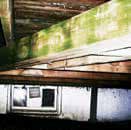
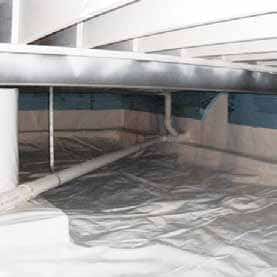

Concrete slab homes are a good option to turn to when there is a high water table present or shallow rock in the region that limits the ability for basement construction. Although slab construction is typically more economical than basement construction, slab foundations aren’t without their flaws.
One major fallback to slab foundations is that they are constructed in the active soil zone, which is affected the most from seasonal wetting and drying.
As is the case with any foundation, it all depends on soil and climate conditions. Slab homes require very little site preparation and work well on level properties. Slab foundations are widely used with Sunbelt, beach or coastal, Florida style, and adobe-style house plans. Slab homes are not as common in the Midwest but are still present.
In general, slab-foundation homes experience the best results in warm climates. In the north where the ground freezes in the winter, slabs have a tendency to shift (or at the very least cause cold floors). While they are more simple and economical to construct, the major downside is a home built on a slab doesn’t get the added benefit of extra storage space.
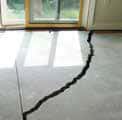
While there isn’t significant maintenance with a slab foundation, there are still some steps you can take for upkeep:

Each year, set aside one day to perform your yearly home maintenance check. Ideally, this should be when the temperature is comfortable (between 60 and 80 degrees) and no extreme weather conditions are present.

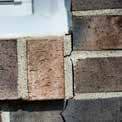
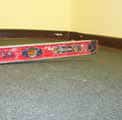
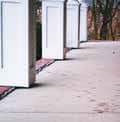
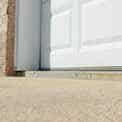
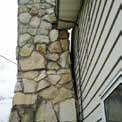
In addition to this checklist to be performed once a year, be sure to check the following additional checklists in preparation for seasonal and climate changes throughout the year.

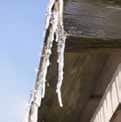
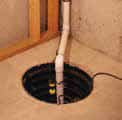

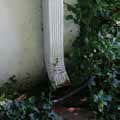
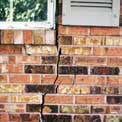


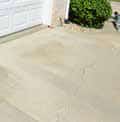


While much of the maintenance checklist is designed for peace of mind and caution, you will inevitably come across issues each time you perform a thorough check. How you respond to problems is just as important as discovering that the issue exists.
![]() Fix the problem yourself. For small problems or for tasks that you have experience or expertise addressing, you can handle them right away.
Fix the problem yourself. For small problems or for tasks that you have experience or expertise addressing, you can handle them right away.
![]() Document the problem. If it’s an issue like a crack in a wall or foundation, you should document the issue by taking pictures. You can then compare changes in the size, growth, and so on overtime to see if the problem is getting worse. Use a ruler or tape measure in the photo to help determine size and growth, and try to take the picture from the same angle each time.
Document the problem. If it’s an issue like a crack in a wall or foundation, you should document the issue by taking pictures. You can then compare changes in the size, growth, and so on overtime to see if the problem is getting worse. Use a ruler or tape measure in the photo to help determine size and growth, and try to take the picture from the same angle each time.
![]() Call the professionals. When a problem appears to be serious, it’s best to call the professionals in to take a look. Certain issues, such as problems with a foundation, require experience and training to handle. And when it comes to your investment, you don’t want to risk taking shortcuts or avoiding problems. Reputable companies, such as Helitech, will take a look at the problem for free, tell you if you can fix the problem yourself, assist in monitoring the problem to see if it persists, and provide a written estimate if repairs are needed. Always check with your local BBB or Home Builder’s Association when hiring a contractor.
Call the professionals. When a problem appears to be serious, it’s best to call the professionals in to take a look. Certain issues, such as problems with a foundation, require experience and training to handle. And when it comes to your investment, you don’t want to risk taking shortcuts or avoiding problems. Reputable companies, such as Helitech, will take a look at the problem for free, tell you if you can fix the problem yourself, assist in monitoring the problem to see if it persists, and provide a written estimate if repairs are needed. Always check with your local BBB or Home Builder’s Association when hiring a contractor.
If you ever find an issue with your home’s foundation – whether your house is built on a basement, crawlspace, or slab – don’t hesitate to give Helitech a call at 800-246-9721. We would be happy to provide you with a free repair estimate and answer any questions you may have. We have been in business for over 5 decades and stay up to date with the latest developments and technologies every step of the way!
Collinsville, IL
very pleased with Mike B and loves the work he completed